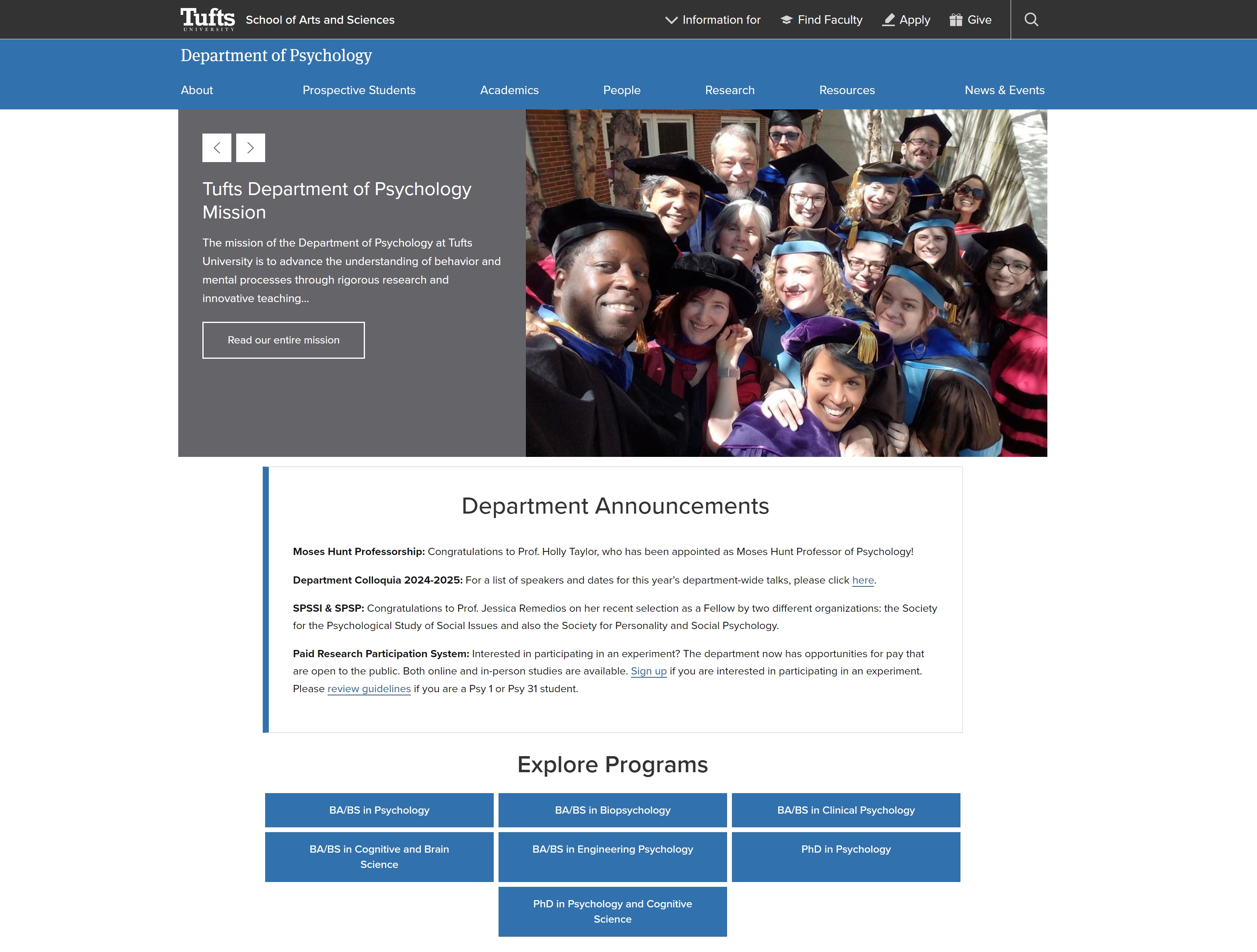
Tufts University Department of Psychology
The Department of Psychology at Tufts University conducts cutting-edge research aimed at understanding the causes and consequences of mental processes and behavior. Our work addresses social, cognitive, and neural levels of analysis. We are innovative and interdisciplinary in our approach and emphasize understanding phenomena that have a direct impact on society. Scientists at all levels - faculty, postdoctoral trainees, and graduate and undergraduate students - engage in collaborative scholarship and critical thinking in the classroom and in the laboratory. This synthesis, between research and teaching, positions us to ask and answer fundamental questions while also enriching our students' understanding of psychology.

Detaljerad introduktion
At Tufts, we are distinctive in supervising more undergraduate majors than any other department on campus, while simultaneously maintaining a vibrant PhD program and one of the university's highest research profiles. Our focus is strongly experimental, with researchers at the forefront of neuroscience, cognition and perception, affective science, experimental psychopathology, developmental psychology, and social psychology. By bridging across these different areas of Psychology, we create a more complete picture of the how and why of behavior, from the microstructure of perception and cognition to the robustness of social behavior. In our undergraduate and graduate programs, we are committed to involving our students in collaborative scholarship at every level, both inside and outside the classroom. Our department prepares undergraduate and graduate students to ask science-based questions about the origins and mechanisms of human and animal behavior using discovery-oriented research and teaching. We are student-centered, striving to combine excellence in teaching, research, advising, and service.
MerUniversitet

King's College London Department of Psychology
For over 60 years, the Department of Psychology has been at the forefront of research into clinical practice. Its research interests span a wide range of mental health disorders and physical health problems, including anxiety disorders, trauma, somatoform disorders, pain, psychosis, depression, antisocial personality, disorders in childhood and adolescence, emotion and personality, and neurodegeneration.

The University of Manchester Department of Psychology
Our structure helps ensure smooth research pathways - from pure discovery science through to clinical application and patient care. The integration of discovery biology, clinical application and patient care within a single Faculty, particularly in a region with notable health inequality, provides us with a real opportunity to have a very significant and positive impact on people's lives.

University of Notre Dame Department of Psychology
The Department of Psychology at Notre Dame is a community of scholars and learners seeking to reveal and understand the principles and mechanisms that give rise to human behavior. Using basic, applied, and clinical research methods, our faculty and students develop novel theories of behavior, connect behavior to brain function, and develop evidence-based approaches to the treatment of behavioral disorders.